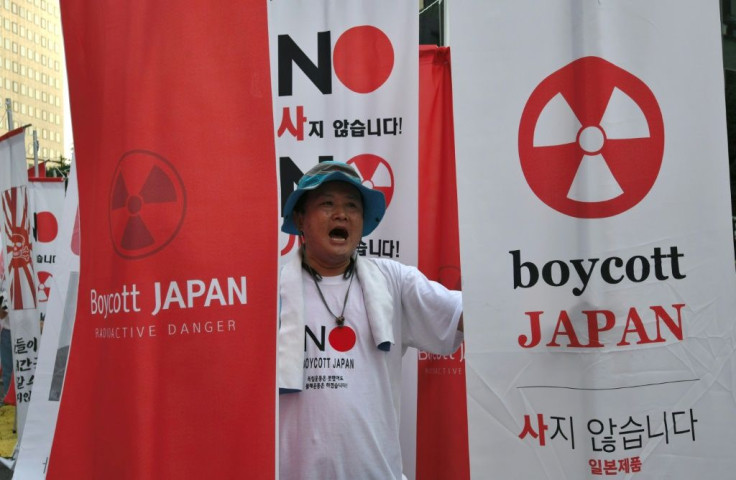No More For Me: S. Korean Beer Imports From Japan Plunge 97%

South Korean imports of Japanese beer slumped almost to zero last month in the face of a consumer boycott sparked by a bitter trade and historical dispute between Seoul and Tokyo, data showed Monday.
Japanese companies shipped $223,000 worth of beer to South Korea in August, figures from the Korea Trade Statistics Promotion Institute showed -- down 97 percent from $7.57 million last year.
Before the trade spat -- which has raised concerns over ties between the neighbours, both of them US allies -- Japanese beer had long been South Koreans' favourite alternative to their country's own brews, according to KTSPI, topping the import tables since 2010.
"Japan's rank dropped to the 13th place last month," an official from KTSPI told AFP, adding that beers from China, the Netherlands and Belgium now had the biggest shares of South Korea's imports.
Seoul and Tokyo have been embroiled in the trade dispute since July, when Japan tightened export controls on three chemicals essential to key products of South Korean tech companies such as Samsung.
The restrictions followed a series of South Korean court rulings ordering Japanese firms to pay for forced labour during WWII.
South Koreans have since mounted a widespread boycott of Japanese goods, including beer, cosmetic products and cars, among others.
They were also second only to Chinese as the top visitors to Japan last year, but have increasingly shunned the country since early July.
An average of 12,140 Koreans a day flew to Japan from Incheon airport during last week's four-day harvest festival, down 39 percent from last year's holiday, the operator told AFP.
Several South Korean airlines including flag carrier Korean Air have suspended routes to Japan because of falling demand.
Japanese automakers have also seen sales in South Korea slump in recent months.
South Korea and Japan are both democracies and market economies faced with an overbearing China and a nuclear-armed North Korea.
But relations between Tokyo, Beijing, and both Koreas continue to be heavily affected by Japan's expansionism in the first half of the 20th century, including its colonisation of the peninsula.
© Copyright AFP {{Year}}. All rights reserved.





















